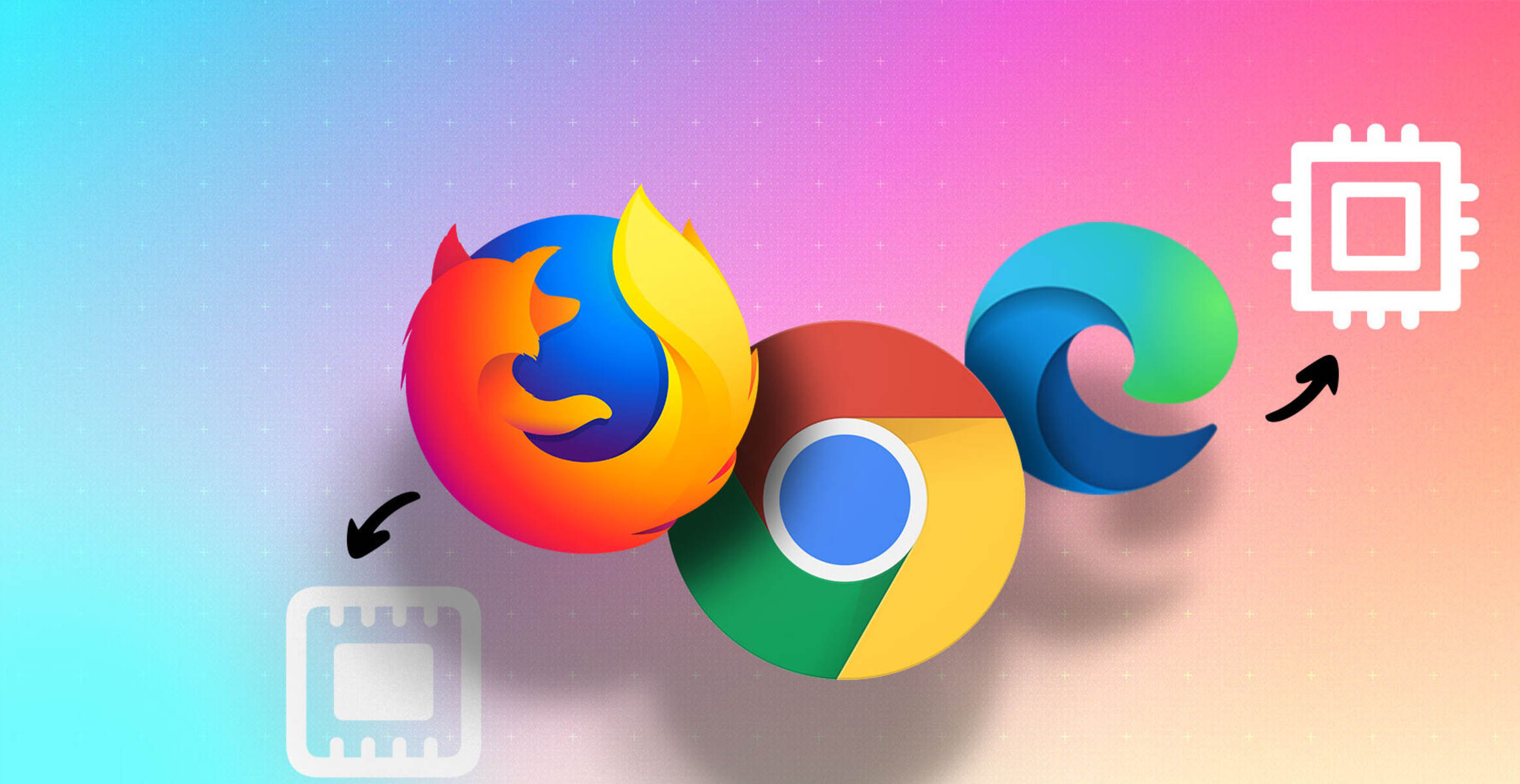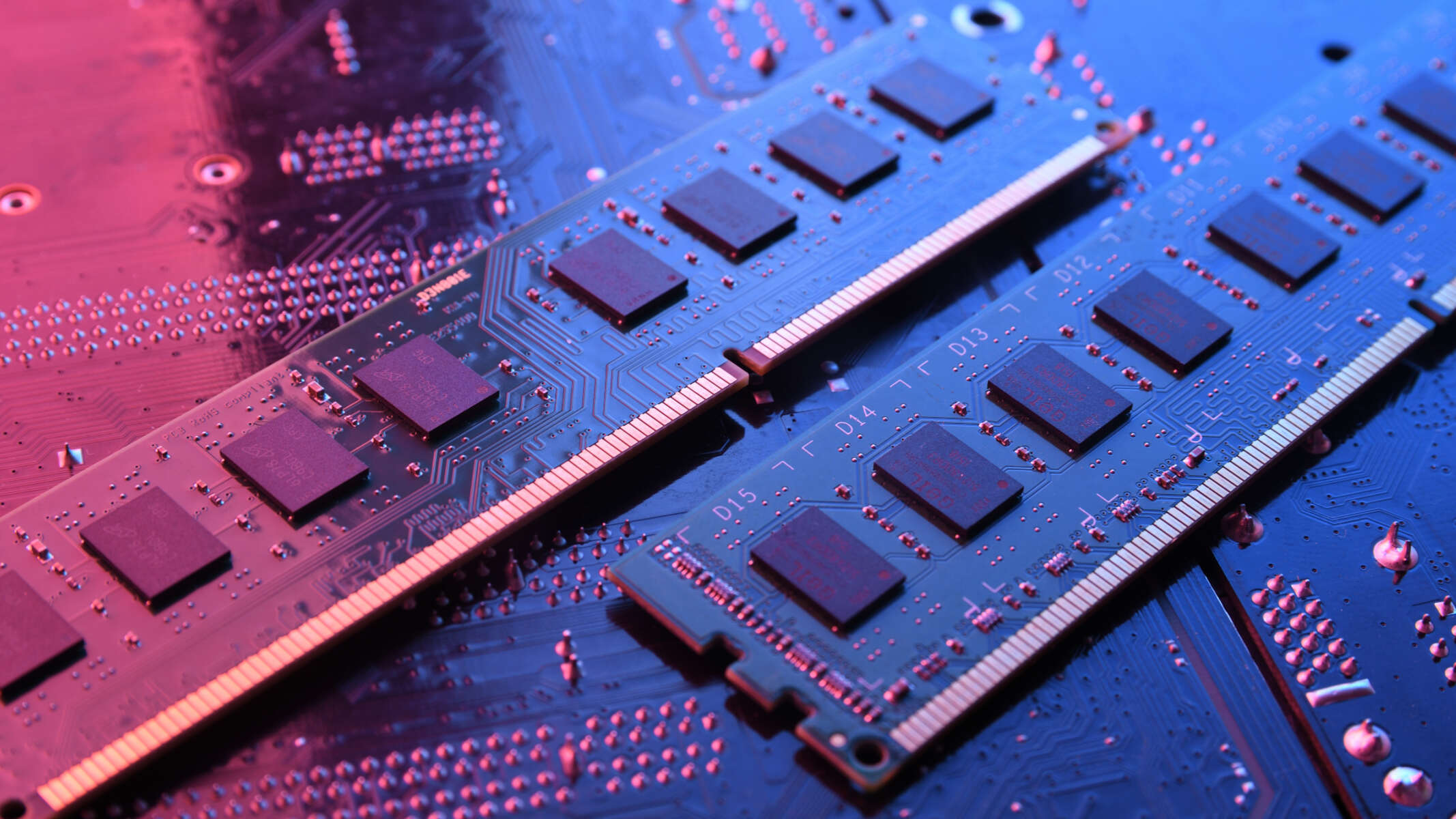Introduction
When it comes to web browsing, one of the key factors that can greatly impact our overall experience is CPU usage. The central processing unit (CPU) is responsible for executing instructions and performing tasks on our computers, including running web browsers. A browser that utilizes a significant amount of CPU can lead to slow loading times, laggy performance, and even drain our device’s battery life.
In today’s fast-paced digital world, where we rely heavily on web browsing for work, entertainment, and communication, finding a browser that uses the least amount of CPU resources is of utmost importance. With numerous browsers available in the market, it can be challenging to determine which one is the best option for low CPU usage.
In this article, we will dive into the world of web browsers and explore the factors that affect CPU usage. We will also compare popular browsers to identify which ones prioritize efficient CPU utilization. So, if you’re curious about optimizing your browsing experience and maximizing your device’s performance, read on to find out which browser might be the best fit for you.
Why is CPU Usage Important for a Browser?
CPU usage plays a crucial role in determining the performance and efficiency of a web browser. When we open a website, the browser’s CPU usage spikes as it processes and renders the webpage’s content. If a browser consumes a significant amount of CPU resources, it can result in several negative consequences.
Firstly, high CPU usage can lead to slower loading times. As the CPU struggles to handle the demanding tasks required by the browser, the website’s elements, such as images, videos, and scripts, may take longer to load and display. This can be frustrating for users who want smooth and speedy browsing experiences.
Furthermore, excessive CPU usage can lead to increased power consumption, which is particularly problematic for mobile devices. A browser that drains the battery quickly can significantly limit the amount of time users can spend browsing before needing to recharge. This can be inconvenient, especially when on-the-go or in situations where power sources may be limited.
Additionally, high CPU usage can cause the browser to become unresponsive and sluggish. When the CPU is overloaded, it struggles to process user commands and execute tasks promptly. This can result in delays, freezing, and even crashes, disrupting the browsing experience and potentially leading to data loss.
Moreover, high CPU usage can impact the overall performance of the device. If a browser is consuming a large portion of the CPU’s resources, other applications and processes may suffer. This can lead to a decrease in multitasking capabilities and hinder the smooth operation of other software running simultaneously.
Given these reasons, it becomes evident why CPU usage is important for a browser. By choosing a browser that optimizes CPU utilization, users can enjoy faster loading times, extended battery life, smooth and responsive browsing, and a better overall device performance.
Factors That Affect CPU Usage
Several factors contribute to the CPU usage of a web browser. Understanding these factors can help us identify browsers that prioritize efficient CPU utilization. Let’s take a closer look at the key elements that impact CPU usage:
1. JavaScript Execution
JavaScript is a fundamental programming language used in web development. Websites with complex JavaScript code can put a heavy load on the CPU, especially when executing multiple scripts simultaneously. Browsers that have efficient JavaScript engines and utilize advanced optimization techniques can minimize CPU usage during JavaScript execution.
2. Rendering and Layout
The process of rendering and layout involves converting HTML, CSS, and other web elements into visual representations on the screen. Inefficient rendering and layout algorithms can require excessive CPU resources, leading to higher CPU usage. Browsers that prioritize efficient rendering and layout mechanisms can help reduce CPU strain.
3. Extensions and Plugins
Extensions and plugins add additional functionalities to browsers, but they can also impact CPU usage. Poorly optimized or resource-intensive extensions and plugins can increase CPU load, especially if they run constantly or perform unnecessary background operations. Using lightweight and well-optimized extensions can help minimize CPU usage.
4. Tab Management
The number of open tabs in a browser can significantly affect CPU usage. Each tab requires memory and CPU resources to process and render its content. Browsers that employ smart tab management techniques, such as suspending inactive tabs or allocating resources efficiently, can help reduce CPU usage when multiple tabs are open.
5. Hardware Acceleration
Modern browsers often utilize hardware acceleration to offload some of the workload from the CPU to the computer’s graphics processing unit (GPU). By leveraging the GPU’s capabilities, browsers can improve performance and reduce CPU usage. However, the effectiveness of hardware acceleration can vary depending on the browser and the underlying hardware.
By considering these factors, we can gain insights into the features and optimizations that browsers employ to minimize CPU usage. This knowledge will aid us in evaluating and selecting browsers that provide a smooth and efficient browsing experience while conserving CPU resources.
Comparing Popular Browsers
Now that we understand the significance of CPU usage and the factors that influence it, let’s compare some popular browsers to see how they fare in terms of efficient CPU utilization:
1. Browser 1
Browser 1 is known for its lightweight design and emphasis on performance. It utilizes a highly optimized JavaScript engine, resulting in efficient handling of JavaScript execution. Additionally, its rendering and layout algorithms are well-optimized, reducing CPU strain during webpage rendering. With a minimalistic approach to extensions and plugins, Browser 1 ensures that only lightweight and well-optimized add-ons are supported, minimizing unnecessary CPU usage. Furthermore, its tab management system focuses on conserving resources, suspending inactive tabs to reduce CPU load.
2. Browser 2
Browser 2 takes advantage of hardware acceleration to lessen the CPU burden. By offloading certain tasks to the GPU, it reduces CPU usage while maintaining smooth performance. The browser also offers a range of optimization settings, allowing users to adjust CPU usage according to their preferences. However, the effectiveness of hardware acceleration may depend on the user’s hardware specifications.
3. Browser 3
Browser 3 prioritizes efficiency in JavaScript execution by utilizing advanced optimization techniques. Its JavaScript engine is designed to handle complex scripts with minimal impact on CPU usage. Additionally, it implements intelligent tab management algorithms, ensuring that inactive tabs consume fewer resources, further reducing CPU load. While Browser 3 may not have extensive hardware acceleration capabilities, its focus on CPU optimization makes it an attractive option.
4. Browser 4
Browser 4 boasts a combination of lightweight design and efficient rendering mechanisms. Its rendering and layout algorithms have been fine-tuned to reduce CPU strain while maintaining excellent visual rendering. The browser also offers a diverse range of extensions and plugins, but emphasizes optimization and encourages the use of lightweight add-ons to minimize CPU usage. Furthermore, Browser 4 provides users with granular control over tab management, allowing them to allocate CPU resources smartly.
It’s important to note that the CPU usage of browsers can vary depending on individual system configurations and the specific versions of the browsers being used. However, these comparisons provide a general overview of how popular browsers approach CPU utilization, helping users make informed decisions based on their specific needs.
Browser 1
Browser 1 is a top contender when it comes to efficient CPU utilization. This browser is well-known for its lightweight design and emphasis on performance, making it a great option for users who prioritize minimizing CPU usage.
One of the standout features of Browser 1 is its highly optimized JavaScript engine. By utilizing advanced optimization techniques, the browser ensures that JavaScript execution is handled efficiently, resulting in reduced CPU strain. This is particularly beneficial for websites that heavily rely on JavaScript for interactivity and dynamic content.
In addition to its JavaScript prowess, Browser 1 excels in rendering and layout algorithms. These mechanisms are designed to be highly optimized, reducing the CPU workload during website rendering. By efficiently converting HTML, CSS, and other web elements into visual representations on the screen, Browser 1 ensures smooth browsing experiences without placing excessive demands on the CPU.
When it comes to extensions and plugins, Browser 1 takes a minimalistic approach. It focuses on supporting lightweight and well-optimized add-ons, preventing unnecessary CPU usage caused by resource-intensive extensions. By providing a curated selection of extensions, users can enjoy additional functionalities while maintaining optimal CPU performance.
Another aspect that sets Browser 1 apart is its smart tab management system. The browser intelligently manages resource allocation for multiple open tabs, ensuring that inactive tabs consume fewer CPU resources. By suspending such tabs or minimizing their impact on CPU usage, Browser 1 improves overall browsing efficiency and reduces unnecessary strain on the CPU.
With its combined emphasis on JavaScript execution, rendering efficiency, lightweight extensions, and smart tab management, Browser 1 proves to be an excellent choice for users seeking a browser that prioritizes efficient CPU utilization. Whether you are a casual internet user or a power user who heavily multitasks, Browser 1’s dedication to minimizing CPU usage ensures a smooth browsing experience without sacrificing performance.
Browser 2
Browser 2 stands out in the realm of efficient CPU utilization by employing hardware acceleration to its advantage. By leveraging the power of the computer’s graphics processing unit (GPU), Browser 2 effectively reduces CPU usage while maintaining excellent browsing performance.
Hardware acceleration offloads certain tasks from the CPU to the GPU, allowing the browser to handle graphics-intensive operations more efficiently. This results in smoother rendering of webpages, reduced load on the CPU, and ultimately, improved overall browsing speed.
Furthermore, Browser 2 offers a range of optimization settings that enable users to fine-tune CPU usage according to their preferences. These settings allow users to strike a balance between performance and power consumption based on their specific needs.
Although the effectiveness of hardware acceleration may vary depending on the specific hardware configuration of the user’s device, Browser 2 ensures that users have the option to make the most of this feature if their systems support it.
In addition to hardware acceleration, Browser 2 also focuses on providing a streamlined and user-friendly browsing experience. The browser prioritizes speed and efficiency in its interface design and implements resource-saving techniques that minimize unnecessary CPU usage.
However, it’s important to note that while hardware acceleration can significantly reduce CPU usage, its effectiveness largely depends on the capabilities of the user’s hardware. Older or less powerful hardware may not experience the same level of benefits compared to newer or more advanced systems.
Despite this limitation, Browser 2 remains a strong choice for users who are seeking a browser that optimizes CPU usage through hardware acceleration. By taking advantage of the GPU’s capabilities, Browser 2 strikes a balance between performance and CPU efficiency, delivering smooth browsing experiences that require minimal strain on the CPU.
Browser 3
Browser 3 excels in prioritizing efficient CPU utilization by focusing on key areas such as JavaScript execution and smart tab management. These optimizations make Browser 3 a compelling choice for users looking to minimize CPU usage while maintaining a smooth and responsive browsing experience.
One of the prominent features of Browser 3 is its efficient JavaScript execution. The browser utilizes advanced optimization techniques that ensure JavaScript code is executed swiftly and with minimal impact on CPU usage. This is particularly beneficial for websites that heavily rely on JavaScript for dynamic content and interactivity.
In addition to its JavaScript optimization, Browser 3 boasts intelligent tab management algorithms. The browser takes a proactive approach to minimize CPU strain by allocating resources more efficiently. Inactive tabs are either suspended or given lower priority, reducing their impact on CPU usage. This approach helps to conserve CPU resources and ensures that active tabs receive the necessary computational power for a seamless browsing experience.
Furthermore, Browser 3 offers a range of customization options, allowing users to personalize their browsing experience while optimizing CPU usage. Users can adjust various settings, such as the number of concurrent processes, to strike the right balance between multitasking capabilities and CPU efficiency.
While Browser 3 may not have extensive hardware acceleration capabilities, its focus on CPU optimization makes it a strong contender. By prioritizing efficient JavaScript execution and implementing smart tab management, Browser 3 ensures that users can enjoy a smooth and efficient browsing experience without unnecessary strain on the CPU.
Whether you are a casual web surfer or a power user who frequently multitasks, Browser 3’s emphasis on minimizing CPU usage positions it as a reliable option for those seeking an optimized browsing experience. With its efficient JavaScript execution, intelligent tab management, and customization options, Browser 3 provides users with the tools to maximize CPU efficiency while enjoying all the benefits of a modern web browser.
Browser 4
Browser 4 stands out as a browser that combines efficient CPU utilization with a focus on rendering efficiency and customization. With its lightweight design and emphasis on optimization, Browser 4 is an excellent choice for users looking to minimize CPU usage without compromising browsing performance.
One of the key strengths of Browser 4 lies in its rendering mechanisms. The browser employs highly optimized rendering and layout algorithms to minimize CPU strain during webpage rendering. This ensures that websites load quickly and smoothly, even on lower-powered devices.
In terms of extensions and plugins, Browser 4 takes a cautious approach. The browser encourages the use of lightweight and well-optimized add-ons, minimizing unnecessary CPU usage caused by resource-intensive extensions. By prioritizing optimization and performance, Browser 4 ensures that users can enjoy additional functionalities without sacrificing CPU efficiency.
Furthermore, Browser 4 provides users with granular control over tab management. The browser enables users to allocate CPU resources efficiently by suspending inactive tabs or adjusting priority settings. This intelligent tab management feature helps to reduce excessive CPU usage and ensures that active tabs receive the necessary resources for smooth and responsive browsing experiences.
In addition to its built-in optimizations, Browser 4 offers a range of customization options. Users can personalize their browsing experience by adjusting various settings, such as resource allocation and performance profiles. These options allow users to strike the right balance between CPU efficiency and individual preferences.
By combining efficient rendering, lightweight extensions, intelligent tab management, and customization options, Browser 4 offers a well-rounded browsing experience that prioritizes CPU utilization. Whether you’re a casual user or a demanding power user, Browser 4’s dedication to minimizing CPU usage provides a smooth browsing experience without unnecessary strain on the CPU.
Conclusion
Choosing a browser that prioritizes efficient CPU utilization is crucial for a smooth and responsive browsing experience. Throughout our exploration, we have identified several factors that impact CPU usage and compared popular browsers in terms of their CPU efficiency.
Browser 1 emerges as a strong contender with its highly optimized JavaScript execution, efficient rendering algorithms, lightweight extensions, and smart tab management. These features work harmoniously to minimize CPU strain and deliver a seamless browsing experience.
Browser 2 stands out by leveraging hardware acceleration to reduce CPU usage. By offloading certain tasks to the GPU, Browser 2 improves browsing performance while maintaining efficient CPU utilization, although its effectiveness may depend on the user’s hardware specifications.
Browser 3 impresses with its emphasis on efficient JavaScript execution and intelligent tab management. By using advanced optimization techniques and prioritizing active tabs, Browser 3 ensures smooth browsing experiences with minimal impact on CPU usage.
Lastly, Browser 4 shines in rendering efficiency, lightweight extensions, intelligent tab management, and customization options. These features contribute to reduced CPU usage and a customizable browsing experience.
Ultimately, the best browser for low CPU usage will depend on individual preferences and specific hardware configurations. It is recommended to try out different browsers, considering their optimizations, features, and personal browsing habits, to determine the most suitable option.
By selecting a browser that prioritizes efficient CPU utilization, users can enjoy faster loading times, extended battery life, improved system performance, and a smoother overall browsing experience. Keep in mind that regular updates and optimizations from browser developers can further enhance CPU efficiency and deliver even better results in the future.
Remember, browsing experiences can vary, so it’s important to find the browser that strikes the right balance between performance, efficiency, and personal preferences. Happy browsing!
Final Thoughts
Efficient CPU utilization is a crucial aspect of an optimal browsing experience. By selecting a browser that minimizes CPU usage, users can enjoy faster loading times, smoother performance, and extended battery life. Throughout our exploration of popular browsers, we have gained insights into the factors that affect CPU usage and how different browsers prioritize efficient CPU utilization.
When choosing a browser, it’s important to consider individual needs and preferences. Factors such as JavaScript execution, rendering efficiency, tab management, hardware acceleration, and customization options all contribute to CPU efficiency. By understanding these factors and evaluating the strengths of each browser, users can make more informed decisions.
While Browser 1 excels in its optimized JavaScript execution and rendering algorithms, Browser 2 harnesses the power of hardware acceleration. Browser 3 stands out with its efficient JavaScript execution and smart tab management, while Browser 4 focuses on rendering efficiency and customization. Each browser offers unique advantages, and the best choice depends on personal requirements and hardware specifications.
Remember to stay updated with the latest versions of browsers, as developers frequently release optimizations and updates to improve CPU utilization. Additionally, regularly reviewing and optimizing extensions and plugins can help minimize unnecessary CPU usage.
Whether you’re a casual user, a power user, or a professional who relies on web browsing extensively, finding a browser that prioritizes efficient CPU utilization contributes to a smoother and more enjoyable experience. Consider trying out a few different browsers to determine which one suits your needs best.
Overall, by selecting a browser that minimizes CPU usage and prioritizes performance, users can optimize their browsing experience and make the most out of their devices. So, take the time to explore the available options and enjoy a faster, more efficient, and enjoyable web browsing experience.

























